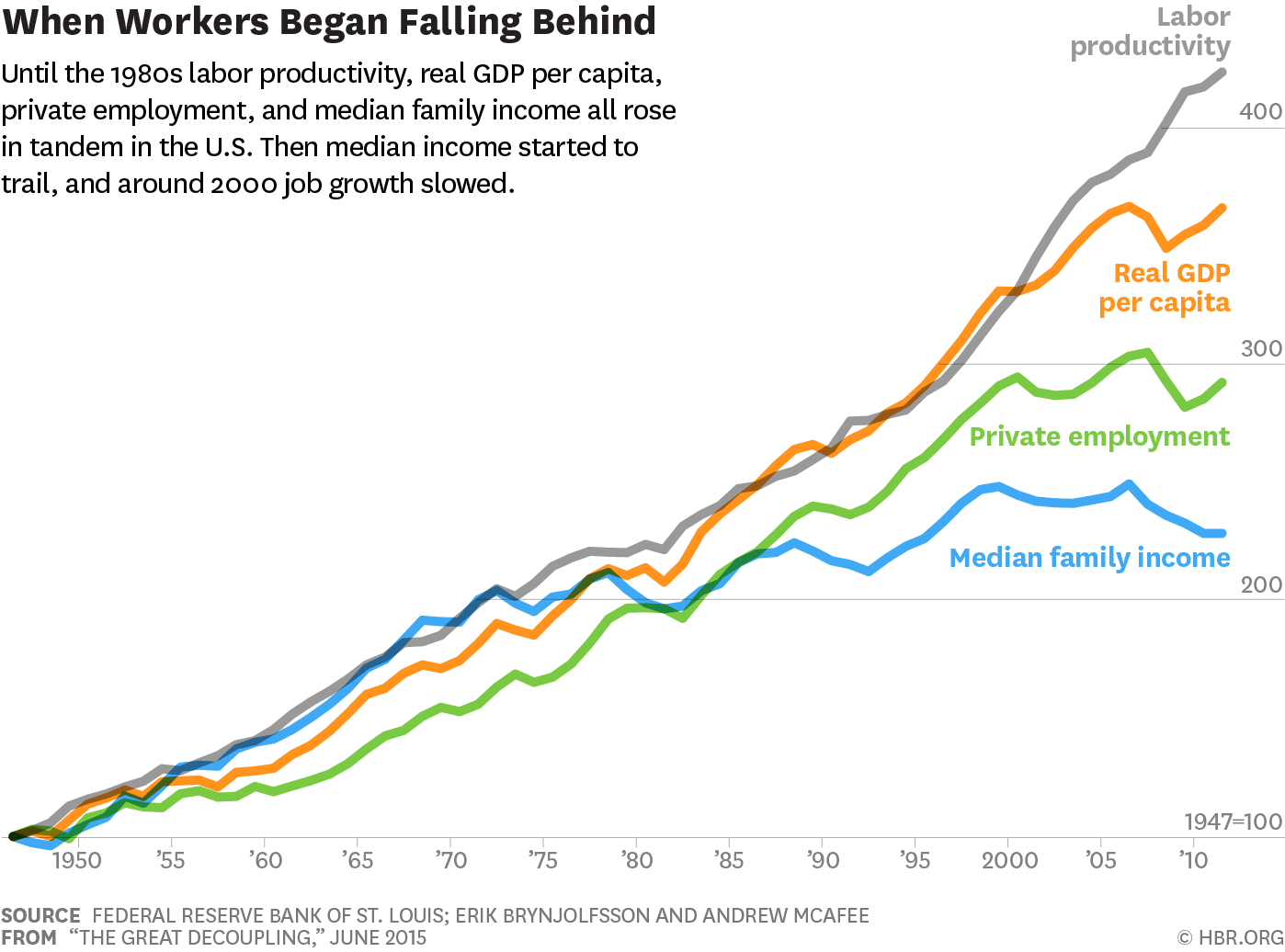Since the industrial revolution in England in the 19th century, many policy makers and the public at large have been concerned about the effects of automation on jobs. For example in 1961, Time magazine published a provocative article entitled “The Automation Jobless,” which posited that efficient machines and productivity improvement would eliminate many low and semi-skilled jobs. As the figure below illustrates, private employment paralleled the growth in labor productivity (in the US) until the turn of the century/ millennium.
Is this time different? Has the age of technological unemployment arrived? In their first book on this topic, Race Against the Machine (RAM 2011), Erik Brynjolfsson & Andrew McAfee (B & M) argue that until the 1980s, as shown above, technological improvement and workers’ incomes grew together . In RAM, they opine we can again bring these two paths together; however, we must equip our labor force with skills to use these technological developments as we have done in the past.
In a second book (2MA, 2014), The Second Machine Age: Work, Progress, and Prosperity in a Time of Brilliant Technologies, B & M offer a more nuanced view. They argue that we should be grateful for the improvements brought forth by technology; however, we need serious policy changes, both short term and long term, to avoid further polarization of the labor force and an increased widening of the distribution of incomes. They argue as follows:
“Technological progress is going to leave behind some people, perhaps even a lot of people, as it races ahead. As we’ll demonstrate, there’s never been a better time to be a worker with special skills or the right education, because these people can use technology to create and capture value. However, there’s never been a worse time to be a worker with only ‘ordinary’ skills and abilities to offer, because computers, robots, and other digital technologies are acquiring these skills and abilities at an extraordinary rate.”
For a short version of 2MA, read “The Great Decoupling: An Interview with Erik Brynjolfsson and Andrew McAfee” in the Harvard Business Review (June 2015) or watch and listen to Andrew McAfee’s talk on 2MA. To read more about 2MA, go here.
